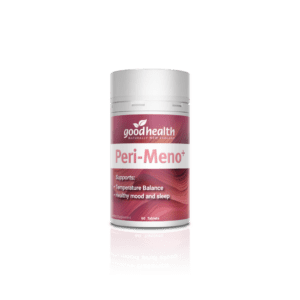
Menopause is the cessation of the fertile menstrual cycle in women. Perimenopause means “around menopause,” but actually refers to the time prior to menopause when hormonal changes start occurring. This can be confusing for us oldies because, when we were growing up (in the dark ages!), the time prior to menopause was always referred to as "premenopause." Nowadays, premenopause has morphed into the term for "the time prior to menopause only if there are little to no symptoms occurring," which does still happen for the lucky few! Technically, perimenopause stops when menopause occurs, and then you are into postmenopause. But so many women in the West experience years of "perimenopausal" afflictions on either side of the menopausal transition. Confusing, isn't it?!
Let's try and unpack all of that and also talk a little about how we can support our body to cross that menopausal bridge in a comfortable way. While there may be a certain amount of natural hormone production decline prior to menopause, there is evidence to suggest that the reproductive hormones do not have to go into a complete tailspin, and, with a focus on giving the body what it needs to be a healthy human animal, we can keep them balanced and functioning well. Many women are finding naturally supportive herbal, dietary, and lifestyle alternatives to help them smooth out the transition through perimenopause and beyond.

Menopause vs Perimenopause vs Premenopause
In many cultures, menopause is considered a gift: where women become the wise “grandmother,” supporting and guiding, while free to enjoy other aspects of life, including vitality, joyfulness, and sexuality, with no further responsibility for pregnancy. Unfortunately, in the developed world, with our fast-paced, modern lifestyle with its accompanying ultra-processed diets and exposure to toxic substances, women can find their quality of life deteriorating when they hit perimenopause. Perimenopausal symptoms—temperature fluctuations, poor sleep, mood changes, stiff joints, weight gain, brain fog, etc.—are known to plague over 80% of Western women. We are also experiencing menopause and perimenopause at younger and younger ages. Perimenopause is the term for the time (months or years) leading up to menopause when hormonal changes are occurring, and menopause officially occurs 12 months after your final period. As periods can become very erratic just prior to the complete cessation of a woman’s reproductive life—e.g., they can occur every few months instead of monthly—menopause only becomes official 12 months after your final period.

In traditional Chinese practice, it is considered abnormal for a woman to experience much in the way of trouble with menopause. There should be little to no brain fog, mood swings, joint issues, or any other of the afflictions that go hand in hand with “the change”. In primitive hunter/gatherer-type groups, problems with menopause and a physiological state that you would describe as “perimenopausal” are virtually unheard of. This may be where the confusion has arisen with the whole perimenopause/premenopause/postmenopause thing. Perimenopause is a modern term, denoting the time prior to menopause when a woman may experience all manner of hormonal symptoms. Premenopause now simply denotes a relatively non-symptomatic experience, even while hormonal changes are occurring. While it does not mean that we are not supposed to feel changes happening, it seems to be that human females are not really supposed to experience too much in the way of a symptomatic “perimenopause,” and that a much smoother transitional experience may be more evolutionarily the norm.
Perimenopausal Rollercoaster
It is thought that rollercoaster perimenopausal “symptoms” are merely caused by an increasingly erratic ebb and flow of female hormones; however, it is becoming clear that a malfunctioning metabolism, stress, and nutrient deficiencies are also major factors. These things will certainly affect the internal organs that regulate and support hormonal health. Additionally, thyroid and liver health are particularly important for reproductive health. Even though a menopausal body still makes oestrogens, it is possible that some Western women may experience a sort of “oestrogen withdrawal”, much like going cold turkey, as their body produces lower amounts of oestradiol. Research has shown that it may be more of the drop in progesterone that causes most perimenopausal women in the West to experience a rollercoaster ride, but there are a number of factors involved.
Stress is a big problem for perimenopausal hormone balance because when we are stressed, our bodies cannot produce and balance, or effectively metabolise and excrete, our reproductive hormones, in particular, the oestrogens. We need cortisol to rise and fall during the day, but excess stress can lead to elevated levels at the wrong time. Unfortunately, elevated cortisol for long periods is associated with disruptions in hormone balance, circadian rhythms, metabolism, cardiovascular issues, blood sugar imbalances, and weight gain. “Oestrogen dominance” can come with its own set of problems. Production of progesterone can be suppressed by stress but supported by a healthy metabolism, and progesterone can help manage healthy levels of cortisol and the oestrogens.
In the end, for many of us, menopause can seem like a vicious cycle. Our modern lifestyle may very well be to blame for the epidemic proportions of women with menopausal issues. Excessive blue light exposure and lack of sunlight, chemical and air pollution, alcohol consumption, central adiposity, inflammation, refined sugar and seed oils, medications, nutrient deficiencies, etc., have all been shown in research to cause or exacerbate serious metabolic complications and hormonal imbalances.
If anything about your cycle, perimenopause, or menopause is worrying you, please see your healthcare professional.
Is There a Recipe for a Healthy Menopause?

The recipe for a healthy perimenopause and menopausal transition is very similar to the recipe for a healthy reproductive system throughout our life. If we follow the lead of hunter/gatherer groups, or traditional humans (and there are quite a few!), still living a natural, species-appropriate lifestyle, we may find more effective ways to support our female hormones during perimenopause, even in a vastly different, modern world. See Ancestral Wisdom for Female Hormonal Health, Part 1 and Part 2.
The main factors to “dial in” appear to be a nutrient-dense, whole foods-only, omnivorous diet (no ultra-processed foods); a balanced microbiome and a deeper, more supportive connection to the earth, nature, and each other; appropriate and continuing activity, stress management, creativity, and learning; limiting environmental toxicity; and daily exposure to natural light. Being able to sleep on average 8-9 hours a night is vital for our well-being. These lifestyle practices have been shown in scientific research to support sound sleep and our circadian rhythm, as well as supporting balanced hormonal function, stress management, redox potential (healthy oxidative processes), and the production of naturally high “feel good” hormones.
If you are a female at any stage of perimenopause and you are experiencing an imbalance in reproductive hormones that is affecting your quality of life, you can also read more about menopause and perimenopause here; and more information about supportive things you can try here.
Herbs have a long history of use in traditional practice and can be a wonderful support for female hormones.

Introducing: Good Health Peri-Meno+
Good Health Peri-Meno+ is a comprehensive formula containing scientifically researched herbs to support women through the peri- and postmenopausal years. Hops has been shown to support temperature balance, mood, brain function, and relaxation in menopausal women. Black cohosh is well-known as a support for healthy mood and internal temperature comfort, and fenugreek supports hormonal balance during menopause. Ashwagandha and sage are added to support mood, brain health and function, stress management, and restorative sleep. Ashwagandha has been shown to support healthy cortisol levels. All 5 herbs have been used traditionally to support women as they move through menopause, but they also have been studied regarding their support of a healthy weight, metabolic rate, and cardiovascular and antioxidant function.
Peri-Meno+ supports:
- Temperature comfort
- Mood and stress management
- Healthy sleep
- Hormonal balance
- Cardiovascular and brain function
- Healthy metabolism, weight, and blood sugar balance
If you are at all concerned with any part of your reproductive and/or hormonal life, please see your GP or connect with a natural health professional to personalise your diet, lifestyle, and herbal supplements.
For more detailed information about female hormonal health, please see the articles in the Women’s Health Series:
Ancestral Wisdom for Female Hormonal Health, Part 1
Ancestral Wisdom for Female Hormonal Health, Part 2
The 3 Ms and the Female Hormonal Life Cycle, Part 1 – Menarche
The 3 Ms and the Female Hormonal Life Cycle, Part 2 – Menstruation
The 3 Ms and the Female Hormonal Life Cycle, Part 3 – Menopause
